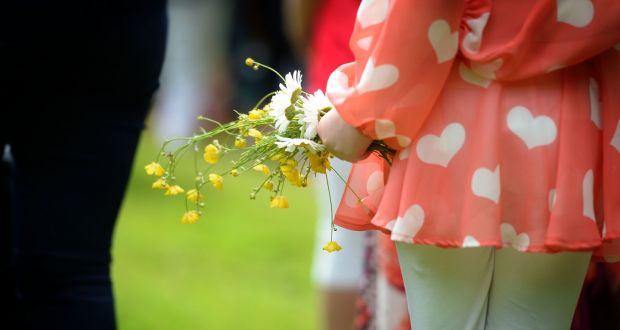Warning Issued about Deaths of "Illegitimate" Children in 1945
By Kathryn Torney
A warning about the level of infant mortality among illegitimate children in Northern Ireland was sounded in 1945. The warning on the Church of Ireland home is included in the files on the North’s mother-and-baby homes that are available to view at the Public Record Office of Northern Ireland (Proni). Other files have been retained by religious orders. In a letter to the North’s ministry of finance in 1945, Major David Anderson, the chairman of the committee of Hopedene Hostel for unmarried mothers and their children, raised concern about “the heavy mortality figures among illegitimate children” and 'illegitimate children are allowed to die' He also asked for “sympathetic attention” to be given to his request for financial assistance for the home. Mr Anderson said he believed that “for want of proper supervision, many unwanted babies die because of the indifference of those who look after them”. This matter alone, he argued, “is worthy of government consideration and enquiry”. Mr Anderson’s appeal for financial support for the home in Dundela Avenue in the Strandtown area of Belfast was rejected by the ministry, who suggested that he instead contact the ministry of health. In response, Mr Anderson said that, as suggested, he would appeal to the maternity and child welfare committee of the city’s corporation. But he stressed again that the infant mortality figures among illegitimate children “are alarming, leading one to the conclusion that many of these unwanted children are allowed to die”. Salvation Army Another Proni file relates to the Salvation Army in Northern Ireland and contains correspondence between the organisation and the prime minister’s office. One letter refered to the Salvation Army’s Thorndale House, a mother-and-baby home which was based at Duncairn Avenue in Belfast. Written in 1959, it states that they “usually have about 40 girls in the home and 20 to 30 babies and young children”. The Salvation Army was unable to supply other statistics or documents relating to its residential units for mothers and babies in Northern Ireland. A spokesperson on behalf of The Salvation Army told Detail Data: “We were one of a number of churches, charities and social agencies working in partnership with social services and health services and provided residential units for mothers and babies. “There were extreme social pressures on young women and their families to give a child up for adoption or fostering. Social pressures have evolved, as has the social welfare system. Our policy was that adoption outside the birth-family should be a last resort. “Due to data protection rules, we are unable to provide national statistics on the women who stayed in these residential units. “Our Family Tracing Service has an established track record of finding people and would work to trace individuals and family members if contacted.” The spokesperson added that the Salvation Army supported the call for an inquiry into Northern Ireland’s mother-and-baby homes.
|
.
Any original material on these pages is copyright © BishopAccountability.org 2004. Reproduce freely with attribution.
